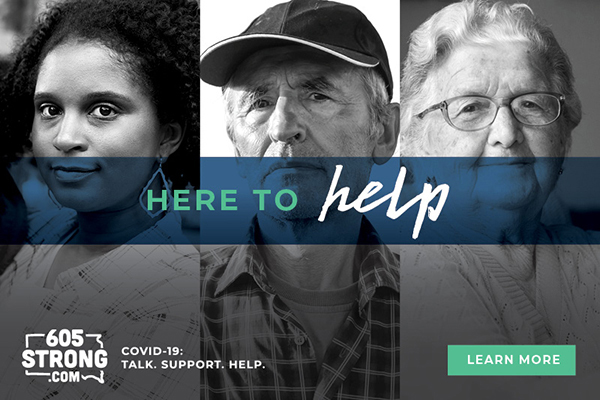We Will Get Through This
With the COVID-19 situation changing rapidly, it's hard to predict what tomorrow may bring. With the help of healthcare providers, schools, leaders, businesses and communities across the state we are taking proactive steps to reduce the spread of the virus. Together, we will get through this.
Top Questions About COVID-19
Do COVID-19 vaccines affect fertility?
No, they do not. There is no evidence that COVID-19 vaccines cause fertility problems, in women or men. If you are trying to become pregnant now or want to get pregnant in the future, you can and should receive a COVID-19 vaccine.
Are the vaccines safe for people who are currently pregnant or breastfeeding?
Yes, vaccines are safe for people who are pregnant or breastfeeding. COVID-19 vaccination is recommended for all people 5 years and older, including people who are pregnant, breastfeeding, trying to get pregnant now, or might become pregnant in the future. There is no evidence of miscarriages, stillbirths, or preterm births linked to the vaccines. In fact, getting vaccinated is especially important for pregnant people who have a higher risk of complications from COVID-19. Additionally, a recent study found antibodies against COVID-19 in babies born to vaccinated people, which might help protect the babies. And recent reports indicate that vaccinated breastfeeding people have antibodies in their breastmilk, which may also help protect their babies. Read more about vaccinations and pregnancy/breastfeeding here.
Who should get tested?
The following people should get tested for COVID-19: people who have symptoms of COVID-19; people who have come into close contact with someone with COVID-19 should be tested to check for infection at least 5 days after they last had close contact with someone with COVID-19; people who are not up to date with their COVID-19 vaccines who are prioritized for expanded community screening for COVID-19; and people regardless of vaccination status who have been asked or referred to get testing by their school, workplace, healthcare provider, state, tribal, localexternal icon or territorial health department.
What is the difference between isolation and quarantine?
Isolation and quarantine help protect the public by preventing exposure to people who have or may have a contagious disease like COVID-19. Isolation is for people who are already sick. Isolation separates and restricts the movement of the sick individual so they can’t spread the disease. Quarantine is for people who are not sick but may have been exposed. Quarantined individual must stay at home or another location so they don’t unknowingly spread the disease to others. Click here to use our Quarantine & Isolation Calculator.
When are you up to date with your vaccination?
You are up to date with your COVID-19 vaccines when you have followed the current recommendations listed here
The recommendations will be different depending on your age, your health status, and when you first got vaccinated.
The recommendations will be different depending on your age, your health status, and when you first got vaccinated.
How can we know the vaccines are safe and effective if they have only been authorized for emergency use?
The FDA has authorized the use of three vaccines in response to the public health emergency caused by the COVID-19 pandemic. (Pfizer has been granted full FDA approval for those 16 years and older) Emergency use authorizations get vaccines distributed faster than the formal FDA approval process without skipping any mandatory safety checks. Large clinical trials demonstrated that the vaccines were safe and effective, and real-world experience has confirmed those findings.






